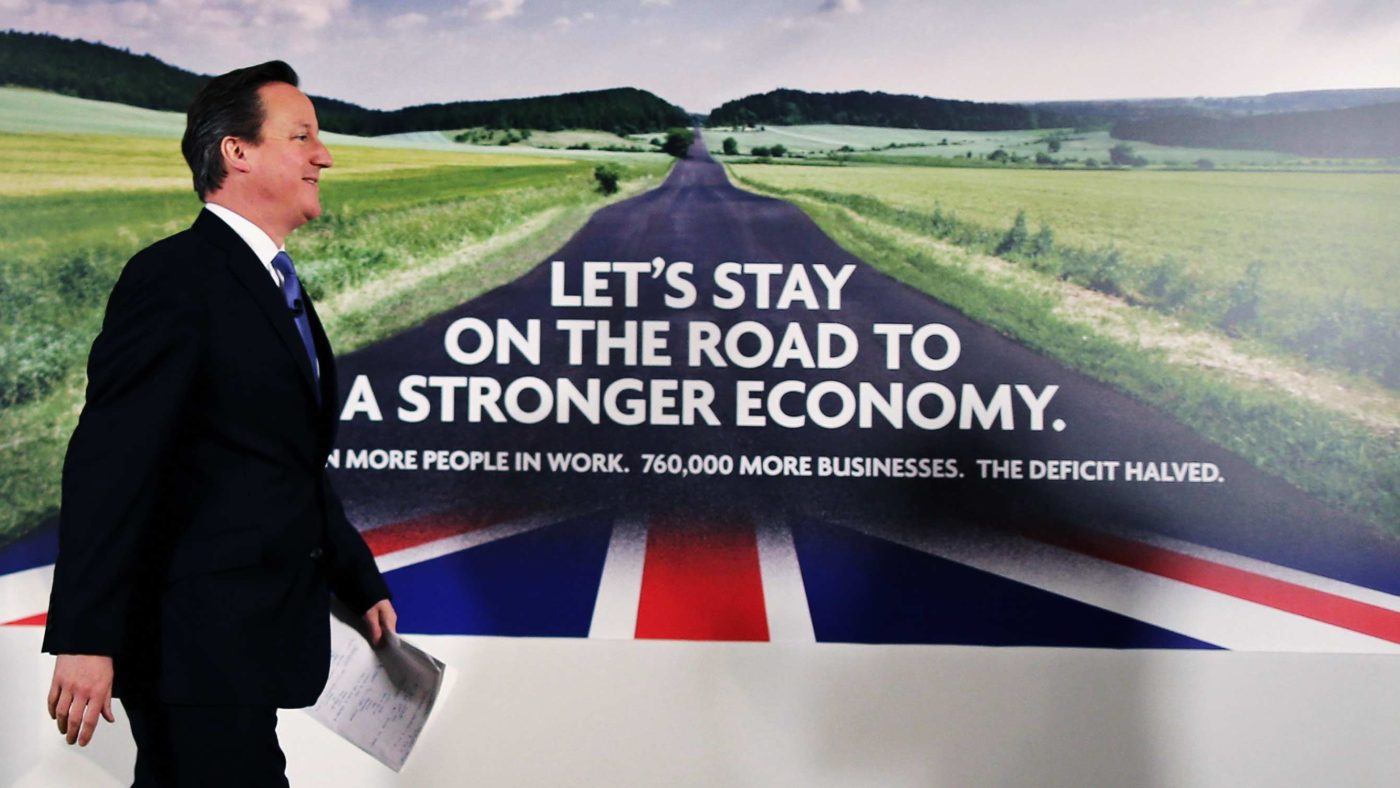“For a strong and stable economy”. Was that so difficult, Theresa?
It may be 10 years on from the great crash, but it would still have been a pertinent message. These are tumultuous times for the global economy, and we are still a good way short of getting the government’s accounts under control. Meanwhile, Brexit looms large.
This election seemed to contradict that cliched old adage, “It’s the economy, stupid”. As Ryan Bourne pointed out on CapX, it became – absurdly – a non-issue.
This was due to a strategic decision by the Conservative leadership, and campaign manager Lynton Crosby, to sideline the economy in favour of running a presidential campaign underpinned by the slogan of “strong and stable leadership”.
This approach was, put simply, catastrophic. It is now very clear that Theresa May was not capable, personable or confident enough to run this sort of campaign. She avoided engagement with the public, she ducked TV debates, she refused media appearances and she was so unclear about her convictions and policies that she evaded every question thrown at her. Throughout the campaign she clung to her vacuous, sloganistic nonsense. Platitudes means platitudes. As soon as her personal ratings fell, an election strategy built on sand simply crumbled.
In 2015, the Conservatives won a majority with a strategy that combined a strong, methodical message on the economy and a negative message on the opposition. But it was underpinned, crucially, by a positive message of ambition and opportunity – and marketable doorstep polices on taxation. What was needed in 2017 was a modified version of this strategy to defeat Corbynite socialism as it defeated the more moderate Milibandism. Had it been employed, I’m convinced we’d be looking at a different result.
The new received wisdom, as of Thursday night, is that voters are sick of austerity. I’m sure they are. Who isn’t? It’s not a lot of fun.
Yet at the same time, we cannot keep living beyond our means forever. And since she came into office, Theresa May has deliberately chosen not to make the case for why austerity is necessary. Instead, she distanced herself from the election-winning positions of the Cameron government, abandoning the austerity agenda and signalling a move towards a more paternalistic philosophy.
Conventional wisdom had it that her social justice message would appeal to voters. But in hindsight, May was utterly foolish to differentiate herself so much from a government that won the last election.
Had the Conservatives hammered away the “strong and stable economy” message, emphasising the pressing need to control government spending, balance the books and get match-fit for Brexit; they would be forming a government with an increased majority right now. The debt, deficit and need for a competitive Brexit economy would have been brought to the forefront of the electorate’s mind and kept there by force:
“Strong and stable economy”
“We need a strong and stable economy”
“Don’t let Labour’s spending wreck our strong and stable economy”
This would have made voters far more sceptical of the massive spending promises of the Labour Party – and created an easy attack line against taxing wealth-creators and businesses. An electorate concerned about a £1.6 trillion national debt and £50 billion deficit would be far more receptive to accusations that the Labour manifesto was economically illiterate.
Having fought on the economy, it would have also been far easier to defend policies such as means-testing pensioner benefits and taxing the assets of the wealthy to pay for social care. Alongside championing the tax cuts – raising personal allowance and higher rate threshold – and education reforms, this would have been a far more successful formula.
Theresa May opted against campaigning on the economy and rejected positive conservative principles, opting instead to double down on the ludicrous “tens of thousands” immigration pledge that is both unachievable and detrimental. Her Brexit strategy was muddled and unclear, again prioritising immigration over the economy by committing to leaving the single market and being irresponsibly relaxed about the prospect of crashing out without a deal.
The election outcome has not justified her decisions, to say the least. Instead, it has brought into question both the direction she has taken her party and the Brexit strategy she sought a mandate for.


